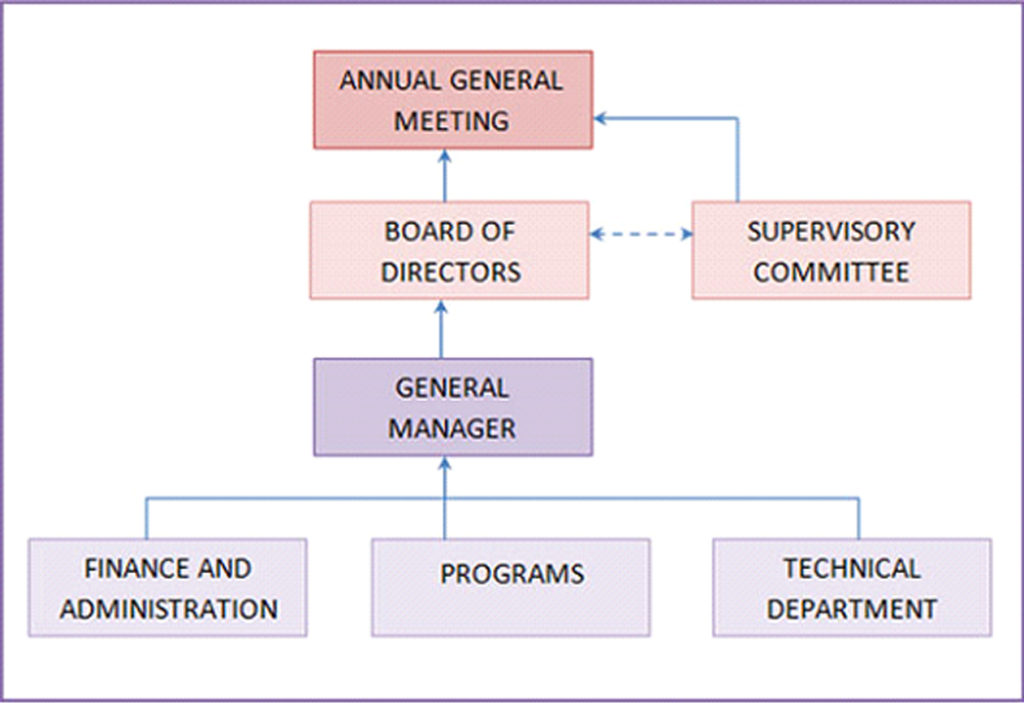Our Services
Ending Poverty
Housing cooperatives conduct businesses that boost member income to support their livelihoods and save for decent shelter. They also engage in urban agriculture projects to increase food security.
Cooperatives have information, education and training as one of their principles. They have the responsibility of educating their members in various aspects. As UHOCU, we build the capacity of Housing Cooperatives in areas such as financial management, cooperative management and governance.
Land is a critical factor in the production of housing. The constitution of Uganda states that land belongs to the citizens within the various land tenure systems including; customary, freehold, mailo and leasehold. However, the existence of multiple, over lapping land tenure systems and the power vested in people over land has led to land conflicts, evictions and fraud in the land sector. Weak enforcement of planning laws and regulations has also resulted in haphazard development and unplanned human settlements.
UHOCU’s land and housing component focuses on creating awareness on the land rights and suitable land use methods for primary housing cooperatives. The Uganda National Land Policy (2013), the condominium law, the 1995 constitution of Uganda are all instruments that clearly spell out the land rights of men, women, children, slum dwellers and other groups. Due to limited availability of public, members of the housing cooperatives buy land from private individuals in order to establish planned housing estates for their members. The high levels of fraud and forgery of land titles, overlapping tenure systems particularly in the central region and the bureaucracy in the land offices has left some victims of land grabbing. UHOCU established the land and housing unit to support Primary housing cooperatives in land identification, land verification, title search and physical planning.
Advocating for the use of appropriate building technologies is not only a matter of preserving and protecting the environment;
It’s one way of suggesting alternative building ideas which are eco-friendly and cost effective in the sector of housing. About 200,000 homes are needed every year in both rural and urban areas in Uganda to house the annual population increase. Burned mud and clay bricks are among the most commonly used building materials and yet these have resulted in high deforestation, pollution and unmonitored clay extraction.
UHOCU conducts training in alternative building techniques in order to equip women, men and youth with non-conventional building techniques in the production of Interlocking stabilized soil blocks (ISSB), water, sanitation and roofing. Building teams within housing cooperatives are also equipped with basic skills in suitable landuse techniques, project costing, marketing, value addition and the development of business plans.
ISSblocks as an affordable and environmentally sustainable alternative to fired bricks are made from soil stabilized with 5% cement, compressed in manually operated machines and sun dried. ISSBs perform better than clay bricks by increasing the structural stability of built walls while reducing the amount of cement needed as mortar.
Our Members
MEMBERSHIP
REGISTERED HOUSING COOPERATIVES UNDER UHOCU AS OF 2020
REGISTERED HOUSING COOPERATIVES UNDER UHOCU AS OF 2020 | |||||
NAME OF HOUSING COOPERATIVE | DISTRICT/MUNICIPALITY | MALE | FEMALE | NO. OF MEMBERS | REG NO. |
Nkokonjeru Caritas | Buikwe | 24 | 25 | 49 | 9589/RCS |
Nnongo | Buikwe | 25 | 16 | 41 | P. 5749/RCS |
Kidokolo-Twezimbe | Buikwe | 9 | 21 | 30 | P. 6396/RCS |
Kabizzi Wankwale | Buikwe | 16 | 18 | 34 | P. 5964/RCS |
Ssunga | Buikwe | 25 | 5 | 30 | P.7157/RCS |
Ngogwe Nyemerwa | Buikwe | 16 | 14 | 30 | P.7420/RCS |
Nkokonjeu Tuzimbe | Buikwe | 21 | 11 | 32 | P.7682/RCS |
Bundibugyo | Bundibugyo | 33 | 23 | 56 | P.9120/RCS |
Awach Improved | Gulu | 15 | 20 | 35 | P.8728/RCS |
Karibu | Kampala – Central | 35 | 25 | 60 | P.1832/RCS |
Makerere Houses | Kampala – Central | 26 | 15 | 41 | |
Kwefako | Kampala – Central | 4 | 30 | 34 | P. 4771/RCS |
MoLHUD | Kampala – Central | 21 | 24 | 45 | 10097/RCS |
Makindye-Galima | Kampala – Makindye | 2 | 34 | 36 | P. 6492/RCS |
Banda Bisoboka | Kampala -Nakawa | 19 | 13 | 32 | P.7037/RCS |
Banda Bisoboka | Kampala -Nakawa | 19 | 13 | 32 | P.7037/RCS |
Kiwatule Bakozi | Kampala -Nakawa | 19 | 15 | 34 | P.7307/RCS |
Our lady of charity Mulago III | Kampala – Kawempe | 3 | 34 | 37 | P.6369/RCS |
Mulago Mama papa | Kampala -Kawempe | 0 | 32 | 32 | P.7680/RCS |
Kawempe Kimombasa | Kampala -Kawempe | 22 | 15 | 37 | P.7401/RCS |
Kawempe Ttula | Kampala -Kawempe | 25 | 23 | 48 | P.10709/RCS |
Luwero Funewuwo | Luwero | 22 | 25 | 47 | P.6402/RCS |
Polysack | Mukono | 15 | 15 | 30 | 9149/RCS |
Uganda Builders | Mukono | 22 | 13 | 35 | 9096/RCS |
Mukono Seeta | Mukono | 26 | 25 | 51 | 9961/RCS |
Buwambo | Wakiso | 10 | 29 | 39 | P.3429/RCS |
Nabweru | Wakiso | 20 | 23 | 43 | 9467/RCS |
Wakiso | Wakiso | 18 | 34 | 52 | 9782/RCS |
Gayaza | Wakiso | 20 | 24 | 44 | P.4696/RCS |
Kasangati | Wakiso | 20 | 15 | 35 | 9818/RCS |
Opulent | Wakiso | 9 | 24 | 33 | 9872/RCS |
Wakiso Destiny | Wakiso | 25 | 7 | 32 | P.7216/RCS |
Parliamentarians | Wakiso | 40 | 60 | 100 | P.6278/RCS |
Our Organogram
UHOCU ORGANOGRAM
The organogram is shown in the figure besides
Annual General Meeting
This is the supreme organ. It consists of all members and meets annually at a time suitable for the lodging of the annual returns and audited accounts with the registrar within three (3) months of the end of the Union’s financial year. It considers and approves the audited accounts and reports of the Union’s auditor and the committee reports, elect, suspend, reinstate or remove the members of the committee, fix maximum credit limit for a member, amend the by-laws, delegates all or any of the duties to a paid officer or employees, confirm admission of expulsion of member(s) in accordance with the By-law 10(b) chooses an auditor subject to approval by the registrar and approves the estimates for the ensuing year among others.
Board of Directors
UHOCU is governed by the Board of Directors (BoD) which acts on behalf of the Annual General Meeting (AGM) where it reports annually. It works independently, formulates and approves policies as well as organization systems. It consists of five members both male and female headed by the chairperson. The BoD is elected for a term of 2years, eligible for re-election but not more than two(2) consecutive terms.
Supervisory Committee
The Supervisory Committee(SUPCO) consists of three members and its headed by the chairperson. The SUPCO periodically evaluates the overall performance of the Uganda Housing Cooperative Union. Like the BoD, it works on behalf of the Annual General Meeting (AGM) and answerable to it.
General Manager
UHOCUconsists of a secretariat headed by the General Manager who is also the secretary to the BoD. The GM has a line ofdepartments reporting directly to him/her. The departments include; Finance and Administration, Technical Department and Programmes. The management implements the relevant field activities and is responsible for the day-to-day running of the Union. The General Manager and the departments implement BoD decisions and are responsible for the development programme/project, workplans, budgets and implementation of programmes. Management through the General Manager reports to the BoD.


